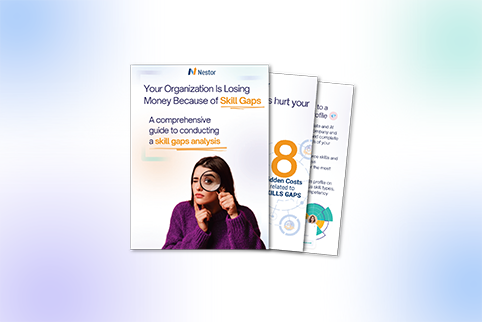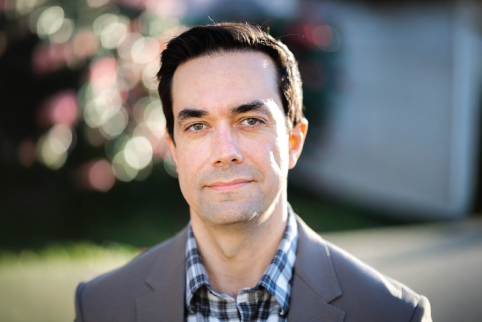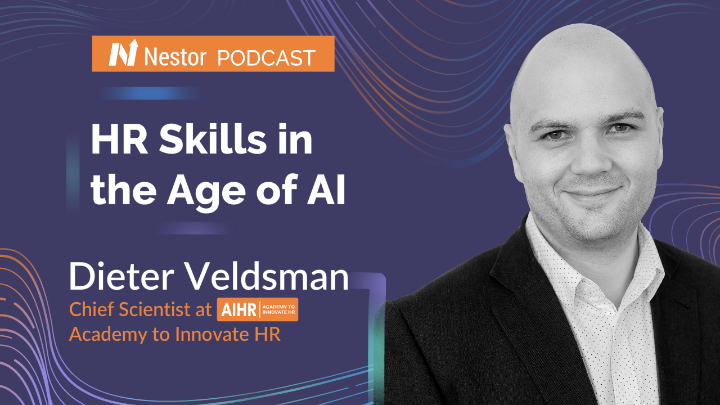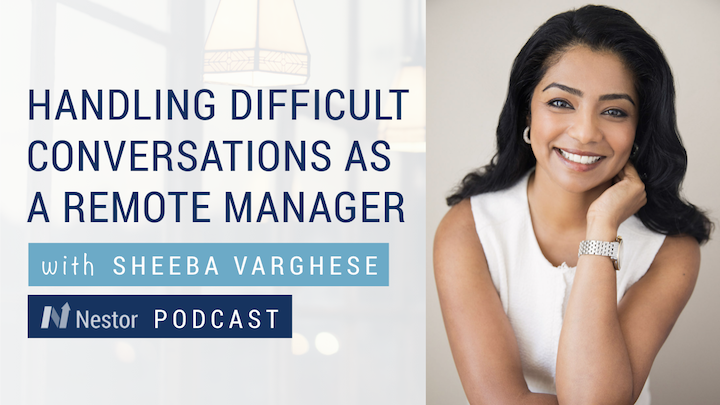Han is the founder of Post-PC Labs, an incubator where he operates on the hypothesis that it’s possible for one person to build multiple businesses simultaneously using the two parts of the sharing economy: people (freelancers) and compute (cloud).
These days, he is running The Modern Art Of Software Leadership newsletter on management and leadership. You can subscribe to his essays here and receive the insights directly in your inbox at https://h6y3.substack.com.
Previously, Han scaled and transformed the engineering teams, including multiple key hires, at Upwork from a startup to a public company in 4 years. He helped scale eBay‘s mobile business from 200M gross merchandise volume to 2B+ and he helped launch the inaugural version of Netflix on Android.
Part of his entrepreneurial experience, Han built a social network that was sold to a publicly-traded company and has been featured by premium sites such as MakeUseOf and TechCrunch.
You can connect with Han on LinkedIn.
Raluca Apostol is Chief Product Officer at Nestor and you can connect with her on Twitter @RaluApostol.
What is the story behind The Modern Art of Software Leadership newsletter?
Han: One of my favorite video games as a child was the Ancient Art of War. In that video game, you are a country and try to take over other countries but you need to understand some of the principles in Sun Tzu’s Art of War book. I thought it would be neat to play off of that and have a series of essays about the art of software leadership and since everything is so current, there’s nothing ancient about what we do, hence “modern”.
The newsletter has a number of raw topics, but since it’s my newsletter, I try to express myself in different ways without worrying too much about how I name things.
How would you define effective leadership for an organization?
Han: In general, an administrator needs to worry about a few things:
1. Consistency
A team needs to say what they do, and do what they say. If they aren’t able to do that with high reliability, it’s impossible to manage the evolution of a business. This is much harder than people think in software because even small efforts require many people to coordinate and collaborate. Factor in remote work, people from different cultures and countries, and things get complex very quickly.
2. Adaptability
Because the business environment can change very quickly, how adaptable is the team? As we’ve recently seen, entire companies are being obliterated in just a span of a couple of weeks. This means roadmap changes, personnel changes, and possibly even fullscale business pivots. Does the team have the skillset and the mindset to change quickly and adapt?
3. Resilience
In modern-day software environments, almost all solutions have a SaaS-based component so invariably you’re going to need engineers who can fight fires when the site is out. This isn’t easy work but it’s something that can be trained into an organization. Related to this, is the design of the organization itself. Software engineering involves knowledge work, which means there are pockets of information everywhere in the company trapped in the minds of people. How resilient is the organization when people come and go within an organization? In the extreme case, what happens when the head of engineering leaves? That’s the ultimate test of success in leadership.
How resilient is the organization when people come and go within an organization? In the extreme case, what happens when the head of engineering leaves? If everything's fine, then you've probably done a good job. That's the ultimate test of success in leadership.
— Han Yuan
Many companies have been forced to go remote due to the Coronavirus pandemic. In the current situation, what are some key aspects that managers should consider replicating in a remote work environment?
Han: Rather than focusing on remote work, I’d say that virtually every company has needed a Plan B in how they operate. If you’re a restaurant, how do you sell food when people aren’t allowed to come into your store? If you’re WeWork, how do you make money if people are working from home?
If you’re the CEO, how do you make sure teams work together when they can’t be together? Do you have the tools, processes, culture, and protocols in place? For extreme disruptions, how do you reduce capitalize your company to be as flexible as possible? Are there functions you can outsource like HR or accounting? Do you need 300 sales people who fly to client sites when you can no longer fly? Can you hire more freelancers? How do you transform your organization so that you can quickly scale up to when you need work, but scale down when things suddenly turn for the worse?
Rather than focusing on remote work, I'd say that every company has needed a Plan B in how they operate.
— Han Yuan
If you’re working in a company, how do you adapt to this new environment when you work and live in the same place? How do you draw those boundaries between life and work, when those boundaries no longer exist?
With Coronavirus, I think the conversation is around what is everyone’s Plan B and how this conversation will be ongoing. We won’t know for a while what will change, but I think it impacts.
In a remote work environment, asynchronous communication forms become very critical and folks have to be more disciplined at documenting things. In order to support that you have to have tooling in place and your knowledge management has to be there.
For ad-hoc communication, you probably need a chat system and from a document generation perspective, you need to make sure that you enable collaboration on that. You also need to have a video conferencing solution.
The hard part is actually the cultural transformation and this means the rules, the policies and the way people work. In a work from home situation, everything is going to change because we went from a place where there was a strong separation between home and work to an entirely different world where it’s all in the same spot.
What are some immediate actions that managers can take to help their people remain productive and motivated?
Han: I think this question depends on what folks are worried about. It’s important to listen and solicit questions about what that might. As it so happens, we’re working on a product at Post-PC Labs called Meeting Town that allows folks to ask anonymous questions and allow them to vote questions up and down so that leaders address the key questions during team meetings. Regardless of the tool, getting to the heart of the concern is important.
If the concerns are around the long term viability of the business, it’s important for CEOs to give their employees a solid perspective of what the burn rate is for the company and what the breakpoints are if things do not improve. It’s uncomfortable to give this level of transparency to folks, but I think businesses need to give people some sense of certainty and a plan during these uncertain times.
Businesses need to give people some sense of certainty and a plan during these uncertain times.
— Han Yuan
If layoffs have to be done, folks need to exercise empathy and realize that survivor guilt is a real issue. Ensure that folks have as much transparency into how decisions were made, who and why certain folks were selected, and a timeline regarding how well capitalized the business will be moving forward.
What you want to avoid is moving the organization from rail to rail – things are awesome one day, then the next people lose their jobs, then the next day there is hope, and the day after is another set of layoffs.
For line managers, the most important thing is upward communication and listening to your team, being available (and flexible) to your people's needs during this time.
— Han Yuan
How should a manager adapt the way he looks after his people’s career growth?
Han: This is going to be very individual dependent because some people view career growth as money, some as title, and others impact. During these times, it’s hard to manage folks anchored on title and money because so many businesses are struggling so folks won’t be adding heads anytime soon and compensation may be flat to negative for a while. We’ve seen these situations in the 2000s and the years after the financial crisis where wage growth was flat for a while.
During these times, it's hard to manage folks anchored on title and money because so many businesses are struggling so folks won't be adding heads anytime soon and compensation may be flat to negative for a while.
— Han Yuan
However, for those folks who measure their career growth based on impact, there’s a huge opportunity. It’s hard to grow a business by 30% year on year, when it’s already moving well. It’s entirely different when the story is about impact during times of struggle and being part of a turnaround story. There’s nothing to say interviews when you just rested and vested, but for those who are invested impact, now’s the time to add to your legend.
As a manager of managers, how can one identify new opportunities and risks within his teams in a timely manner? Does tooling help with that?
Han: Attrition risk is low in environments where folks are worried about their jobs. The risk of switching jobs during a downturn is high and stressful and with the ongoing health crisis, some folks are impacted either directly or indirectly and need the flexibility and stability of a familiar work environment.
To the extent remote work is not part of the group’s culture, I do advocate a daily stand-up either virtually through something like Geekbot.io or just a good old fashioned video conference. I also think tools like Tandem are very promising. While a tool like Tandem won’t replace the office, it does put a shingle outside of someone’s virtual cube to say hey, I can hang out and chat, and create some ad-hoc interactions you wouldn’t normally have, let alone some of the side-by-side benefits of having two people work on the same screen if they choose to.
All of these tools, no matter what they are help communication and I think that needs to be the focus for managers during this time.
What is your opinion about the long term effects of COVID-19 on organizational development? How does this accelerate the Future of Work?
Han: The future of work has been accelerated on multiple vectors.
There’s a chance that we come out of this, and we think everything is amazing and I never want to work in a traditional office again. My sense is that since the shock was so sudden, it’s likely the user experience has had some bumps. Which, could create the opposite effect – that remote work was terrible, organizational productivity suffered and people will once again appreciate being in the office. My best guess is that there will be broader acceptance of remote work – more than ever before and it accelerated things.
Companies are already adapting to what it would be like to have a fully remote workforce. While this was something that folks hypothesized that would take years, all of a sudden it just happened.
When things become normal, they’re probably going to be a number of companies they’re going to realize hey this is actually a doable thing and will probably come out in a better place where in certain cases you know people will work as they traditionally have to a degree. The infrastructure, the tooling, the processes will be in a place and people can still remain effective. I think the economic impact of the crisis is probably going to change how companies operate probably from now on. The reason I think is that there’s going to be a dramatic realization that companies need to capitalize on their businesses in a more flexible way. They’ll really need to think about how do they structure the workforce itself, which in practical terms, may mean that some companies will probably elect to have far fewer full-time employees than they had in the past.
It may even impact the way software is sold today, especially for large deals you still have to get on a plane and fly somewhere to shake hands. Maybe that won’t be needed anymore.
All those changes could have a profound impact on businesses of all types, whether they’re in technology or not, I do think there’s going to be this realization that they need to have a Plan B.
I’m not a scientist, but if you just look at the number of major infectious diseases that have been generated in the last two decades from SARS, tumor and now COVID-19, it’s very possible that the phenomenon could accelerate also the looming threat of all the things that folks have been talking about with climate change.










